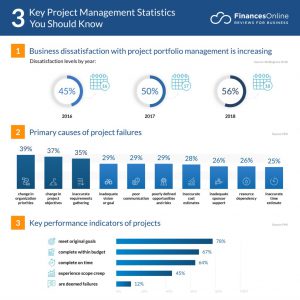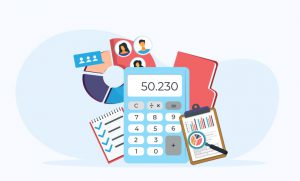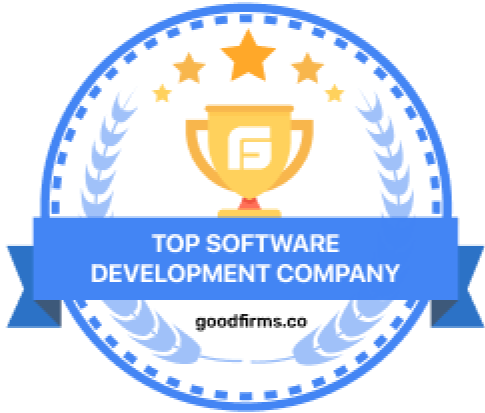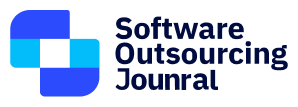When estimating the cost of software development, the first questions that come up are typically “How much will it cost?” and “How long will it take?”
These two questions define the main constraints for most clients – “Can I afford this?” and “Will it be completed in time to meet my expectations?”
Estimating the custom software development cost is not a cakewalk because no two projects are the same. Each project has its own unique goals and parameters, which directly influence the overall cost.
We understand you probably have a lot more questions about the custom software development cost estimation process beyond just the basic cost range. So, let’s begin by quickly reviewing some key prerequisites for estimating software development costs.
Prerequisites to Estimate the Software Development Cost
Let’s begin with the prerequisites needed for estimating software costs.
These prerequisites are addressed during scoping sessions with the software development company. From defining your project goals to discussing monetization strategies, a professional organization will guide you through every step of the process.
Project Goals
The first step in determining custom software development cost is to explain your project goals clearly during the initial conversation. Clearly defined goals help design software that justifies the effort and expense and keeps the development team focused and aligned. The clearer the end goals, the quicker the development process, leading to better cost optimization.
Target Audience
Understanding your target audience means you can develop successful software. They are the ones who’ll be interested in your services or products. You can start by digging into competition analysis and market research and staying on top of the latest trends. You’ll get a clear picture of who your audience is. All the time and effort you invest in this will have a big impact on the overall cost of the software.
Type of Software
Picking the right type of software is a big deal in understanding how much your software project will cost. The more features and complexity you go for, the more time and money you’ll need to invest. But don’t worry; having well-integrated software with plenty of engaging features can really help you stand out in a crowded market.
Aspects Affecting Software Cost Estimation
Project expenditures can vary based on a couple of factors. Let us outline these factors and the questions we ask our clients to understand them better when asking for custom software development cost.

Scope of Work
Understanding the project requirements, features, and desired outcomes helps us gauge the level of complexity and determine the necessary resources.
To identify the scope of work, we ask:
- What tech issues are we aiming to solve?
- Who is your end-user?
- What type of software are you looking to develop?
- What feature development do you want to include in your app?
Technology Stack
Different technologies come with different levels of complexity, development time, and availability of skilled professionals. At Ajackus, we have expertise in more than 100 technologies, so we can say understanding the technology requirements is tricky when accurately looking for custom software development cost.
Before deciding on the tech stack, we consider the following:
- The benefits and limitations of each technology.
- Their stability.
- One-time and ongoing costs associated with each.
- The speed at which a solution can be built with a particular technology.
Infrastructure Model
We need to figure out whether the project will run on your infrastructure or ours, and if it will need any extra setup and maintenance. Things like cloud hosting, servers, databases, and third-party integrations can really impact the overall cost.
The Type of Software You Employe
The type of software you intend to develop also affects custom software development cost. Here are some common examples:
Native Mobile Software
Native apps are king for the smoothest experience on iPhones and Android phones. Think of it like having custom-built cars for each road—they’ll handle the terrain perfectly. But here’s the catch: building separate apps for each platform means you basically need two garages (codebases), which can be expensive.
Hybrid Software
Hybrid applications use a single codebase, which makes cross-platform development more budget-friendly. But remember, the costs can still change depending on the app’s complexity and any third-party integrations you might need.
Web Software
Web applications can range from simple to highly complex. Costs will depend on factors like the availability of templates, the number of pages, user interactions, UI/UX design, database needs, and integrations with other systems.
Custom Software
Custom software solutions are designed to meet your unique business needs. The cost will depend heavily on the complexity of the functionalities, the integration requirements, and the specific business logic involved.
Size of Software Project Estimation
When we’re sizing up a software project, first things first, we ask if it’s small, medium, large, or enterprise-level. This helps us understand that bigger projects need more resources and will cost more.
Small
Software for small projects typically features limited functionality (core features), a straightforward design, and a small-to-medium codebase.
Medium
Medium-sized projects involve greater complexity and functionality. They include core features along with several additional components, a more intricate design, and the capacity to handle moderate amounts of data.
Large
Large projects are characterized by their complexity and often include multiple modules, integration with various systems, a database component, and security measures. Given the resources and effort required, these projects usually come with a significantly higher cost.
Enterprise
Enterprise-level projects are big and need a lot of planning, development, testing, and ongoing support. They come with multiple modules, lots of integrations, and advanced features to handle various complex needs.
Team Allocation
You’ll probably have a project manager, software developers, a QA engineer, and a UI/UX designer in your development team. But this setup isn’t set in stone. Depending on the project, you might need to bring in some additional roles.
In some cases, team members might juggle multiple roles. For example, a developer might also handle testing in a smaller project, or a project manager might take on business analysis in a medium-sized project.
Each team member brings a unique level of expertise and background that influences their role and cost. Here’s a general overview of typical rates for these roles:
- Senior Developer: This person sets up and manages internal workflows, oversees daily tasks, communicates with clients, defines the solution architecture, and handles quality control.
- Several Mid-Level Developers: These are independent specialists who can handle tasks on their own.
- One or More Junior Developers: Junior engineers are added to perform simpler tasks independently and assist with more complex ones, allowing senior developers to focus on their primary responsibilities.
Keep in mind that the exact team composition may vary based on the specific needs of your software project.
Techniques for Estimating Custom Software Development Cost
Estimating the cost of software development accurately is key to a successful project. Let’s dive into some handy techniques that can guide you through this tricky process, keeping in mind the real effort, time, and money involved.
Empirical Estimation Technique
This method relies on data from similar past projects to estimate costs. It involves making some assumptions and educated guesses. Using evidence-based formulas, it provides a rough cost estimate during the planning phase.
Heuristic Estimation Technique
The heuristic approach estimates custom software development cost by examining various factors and relationships within the project. It’s useful for making quick decisions, especially for complex projects, because it considers multiple angles and project parameters.
Analytical Estimation Technique
With this technique, the task is broken down into smaller operations or components. Standard times for each operation are applied, based on information from previous experience, to estimate the total cost.
Once you’re familiar with these techniques, it’s also important to understand the different types of estimates. A software development company will provide these estimates based on your project goals, requirements, and the details discussed during the scoping session.
Understanding Different Types of Cost Estimates
When it comes to custom software development cost, there are three main types, each offering different levels of accuracy at various stages of the scoping process:
Ballpark Estimate
This gives you a rough idea of the custom software development cost. It’s helpful to get a sense of whether the development company is a good fit for your needs and if you should consider working with them.
Budget Estimate
A budget estimate provides a forecast that helps you plan the project’s development strategy and budget for each stage. If you have a budget in mind, this estimate shows whether the development team can work within that limit. Keep in mind that every project comes with potential risks related to time and cost.
SoW (Statement of Work)
The SoW outlines project activities, deliverables, and frameworks. By clearly documenting your needs and strategy, you can request a more precise cost estimate from the development company.
With these cost estimation types in mind, let’s move on to discussing how to estimate the software development timeline, which directly affects the overall cost.
Understanding Accurate Time and Average Costs
Let’s break down how to get a clear picture of custom software development cost in four parts:
Break Down the Work
Dividing larger tasks into smaller ones gives you a better understanding of your requirements and helps clarify any additional questions about the project. Here’s how you can do it:
For example, if you have a large task like building the front page:
Estimated time for the whole task: 8 hours
Breakdown:
- Creating a CTA section: 4 hours
- Latest updates section: 2 hours
- Adding service and solutions section: 6 hours
- Adding Contact Us page: 5 hours
This breakdown shows a detailed view of each component, illustrating that the larger task can’t be completed in just 8 hours.
Ask Questions: Don’t Make Assumptions
The descriptions of tasks you receive or assign are crucial for estimating the average custom software development cost. Always ask your development team how they plan to approach your project. Good communication will give you a clearer understanding of how the costs are justified by the process.
Communicate Thoroughly With Your Development Team
Accurate cost estimates can be tricky, especially if you and your development team aren’t aligned on time and budget expectations. It’s essential to have in-depth conversations with your team.
Keep in mind that your outsourced team is committed to delivering the best results for your project. To ensure clarity, you might want to ask your project manager:
- Is any part of the task or process new to the team and, therefore, time-consuming?
- Does the team have all the necessary information to complete the project?
- Are the team members clear on the project expectations?
Don’t Overlook the Details
For precise custom software development cost estimation, remember to factor in:
- Initial setup
- Revisions
- Testing
- Bug fixing
- Deployment
These elements are critical when estimating the true cost of software development.
Development Timeline
If you have strict deadlines, your project may need to fit within these timeframes. Keep in mind that longer timelines can lead to extra costs for project management, testing, and maintenance, which will increase the overall cost.
By asking detailed questions about these aspects, you’ll gather the information needed for a more accurate estimate of your software costs.
Software Development Cost Calculator

Here’s how you can get custom software development cost in just 4 steps using Ajackus’ cost calculator tool:
Step 1: Choose Your Engagement Model
Select the type of engagement that suits your needs: Team Augmentation or Managed Projects.
Step 2: Define Your Team Composition
Specify your team structure. For example:
Frontend Developers: 3
Backend Developer: 1
UI/UX Designer: 1
Step 3: Outline Team Details
Duration: Less than three months
Objective: Develop an MVP
Time Zone: Eastern Europe
Step 4: Provide Contact Information
Enter your contact details.
Name: John Doe
Phone: +1234567890
Email: john.doe@example.com
Start Building Team In: 1-2 Weeks
Conclusion: Get Your Custom Software Development Cost Today!
With many factors to juggle, estimating software development costs can be a bit complex. However, you can take the time to dive into the details we have provided in this blog. You can make more precise estimates and plan your budget more effectively, setting your project up for success.
Just keep in mind that every project is unique, and the figures we provide are average estimates for custom software development cost.
To simplify things, use our software development cost calculator to save you time and effort. Our growth team will reach out to you within one business day.

Start a Project with Ajackus















